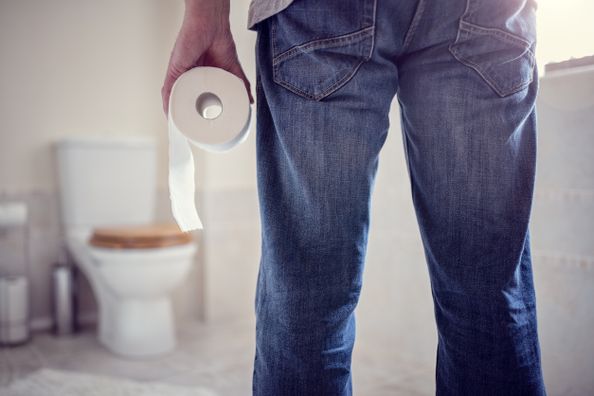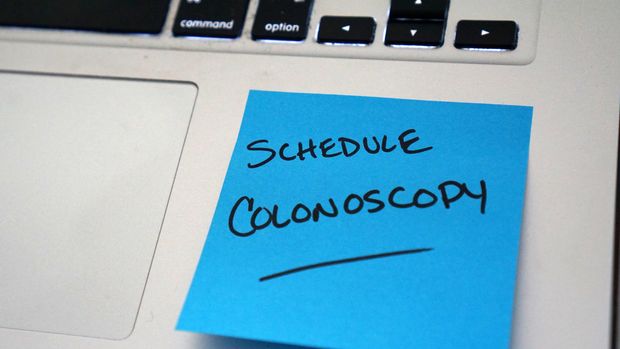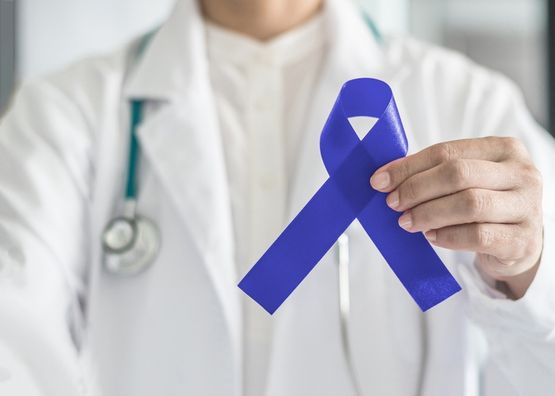A colonoscopy is a diagnostic test that allows your gastroenterologist to examine your large intestine for any abnormalities and pre-cancerous growths called polyps. During your colonoscopy, your doctor can obtain tissue samples for further testing and remove any polyps found before they develop into cancerous tumors. In addition to screening for colorectal cancer, colonoscopies may be used to diagnose a number of gastrointestinal issues and may be recommended if you are experiencing symptoms including:
- Changes with your bowel habits or blood in your stool
- Unexplained abdominal pain or weight loss
- Chronic diarrhea
All adults should receive a colonoscopy screening when they reach the age of 45. Cancer screenings are an easy, effective way to detect cancer early, when they are most treatable. This is especially true of colorectal cancer because it is a slow-progressing cancer. We recommend talking with your primary care physician before the age of 45 to determine your risk of developing colorectal cancer, which takes into consideration both your personal and family health history, and to establish your recommended screening schedule. If you are at an increased risk, your doctor may recommend you begin screening earlier or more frequently.
In order for your physician to perform your colonoscopy, it is important that your colon is completely empty so that they can locate and remove every polyp that may have formed inside your large intestine. If your colon is not fully clear, you may need to repeat your colonoscopy (and the bowel prep), so it is important to follow your doctor’s instructions carefully.
Although it can be a lifesaving test, many people delay completing their colonoscopy because they are anxious or unsure about the procedure or the pre-screening prep. To make you feel as comfortable and prepared as possible, our board-certified Gastroenterologists share tips from taking time off work to staying hydrated to help you “prepare for the prep.”

Cancer screenings, including colonoscopies, can save lives. It is estimated that 60 percent of colorectal cancer-related deaths could have been avoided with earlier detection and treatment, yet approximately 1 in 3 people are not up-to-date with their colorectal cancer screening. Don’t let fear of the prep keep you from reducing your colorectal cancer risk and taking control of your health. For questions about your bowel prep, or to schedule a colonoscopy, call 630−717−2600.
Health Topics:







